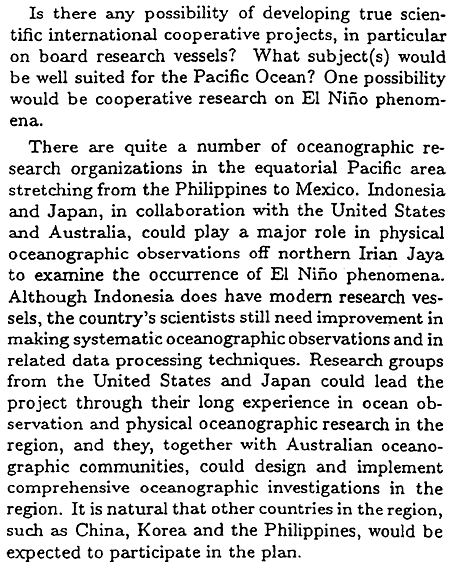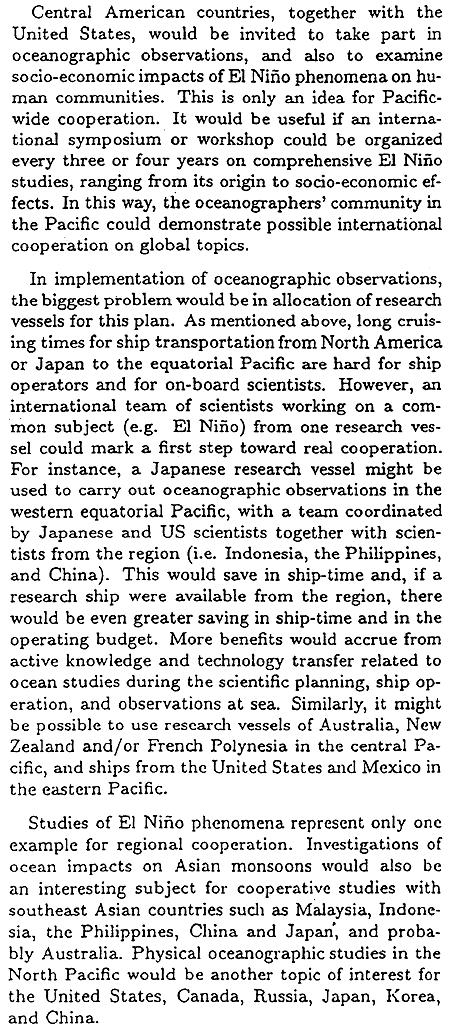Since the United Nations Convention of the Law of the Sea came into power, many cruise organizers who plan scientific activities within the exclusive economic zones of other countries also invite governmental officials/experts from these countries to secure the safety of cruises. In many cases, the organizers do not expect any scientific contribution from these local participants. In the past, some cruise organizers recruited young scientists from developing countries only as cheap labor, and not in the capacity of scientists or collaborators. This is definitely not the right way to undertake cooperative studies.

In the central equatorial Pacific, experiences through the TOGA-TAO operation in cooperative observation and research would be a model in joint ventures, in particular in oceanographic buoy deployment. Although satellite observation would be useful in this particular region, precise measurements of vertical components of sea water ought to be carried out by surface research vessels. However, because there are only a small number of available research vessels in the region (from Fiji and French Polynesia), vessels would have to be brought in from outside the area (e.g. from the USA, Japan and Australia), which entails many useless cruising days just to reach the site. To avoid this problem, a possible solution might be deployment of a large buoy network. This would, however, require a large budget in the initial stage in order to construct a sufficient number of buoys and to install them throughout the region. ATLAS buoys for the TOGA-TAO operation were designed, constructed and deployed in the region by the Pacific Marine Environmental Laboratory of the United States- in close cooperation with the Japan Marine Science and Technology Center. In any future operation of buoy networks, a similar cooperation could be expected; more sophisticated buoys could be cooperatively designed and constructed by Japan, the United States, and other interested countries. Cooperation by developing countries in the region in monitoring safety and continuous operation is essential to secure long-term success of the network.
